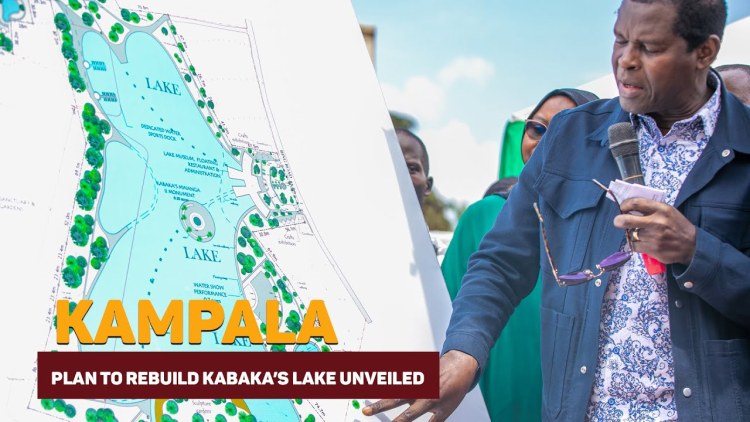Efforts to revitalise Kabaka’s Lake, Uganda’s largest man-made lake, are gaining momentum as the Kampala Capital City Authority (KCCA) embarks on road infrastructure upgrades around the historic site. The construction of Kabaka’s Lake Road in Lubaga Division is now officially underway, forming part of a wider initiative to improve access and catalyse tourism in the Buganda Kingdom.
Commissioned under a major road redevelopment project funded by the Government of Uganda, Kabaka’s Lake Road is one of 24 roads scheduled for construction in Kampala.
At the official groundbreaking ceremony, KCCA Executive Director Hajat Sharifah Buzeki announced that the Ministry of Finance has allocated Shs550 billion for the construction of 87 kilometres of roads over the next three years. The first phase will see 14.6 kilometres completed, including the crucial route around Kabaka’s Lake.
The improvement of Kabaka’s Lake Road is viewed as a cornerstone of broader plans to redevelop the lake into a premier tourism and cultural destination. For years, the Buganda Kingdom has expressed its desire to preserve and promote the lake’s historical significance, but poor road infrastructure and environmental degradation have hindered those efforts.
Israel Kasirye Kitooke, spokesperson for the Buganda Kingdom, emphasised that the road project brings renewed hope for the lake’s redevelopment:
“Kabaka’s Lake is central to Buganda’s heritage. For years, we’ve been constrained by the poor state of the surrounding roads. With these new developments, we can finally move forward with our vision of transforming the lake into a key tourism site.”
Adding weight to the Kingdom’s ambitions, Pastor Robert Kayanja of Miracle Centre Cathedral, a member of the lake’s development committee, unveiled a comprehensive plan to restore and protect the 60-hectare lake. The plan includes shoreline preservation, pollution control, and eco-friendly amenities.
“The new road will be instrumental in stopping further degradation of the lake. It will also enhance access for both tourists and residents,” Kayanja said.
He cautioned against ongoing environmental threats, particularly the dumping of waste into the lake:
“Many homes and businesses lack proper sanitation, and during heavy rains, waste flows directly into the lake. This not only pollutes it but also produces a foul smell that deters visitors.”
Kayanja called on KCCA to tighten regulations on developments near the lake and refuse permits for buildings lacking sewage systems or toilets. He also urged the authority to approve the lake’s redevelopment plan, allowing physical work to begin once road construction is complete.
While the road upgrade has been welcomed, questions remain about the contractor, Dott Services, which has been tasked with completing the 24-road package within 18 months.
Kampala Lord Mayor Erias Lukwago voiced concerns over the company’s past performance, citing previous blacklisting in 2015 over substandard work in Nakasero and Kawempe. He reiterated the need for transparency and strict quality control, particularly on projects tied to heritage sites like Kabaka’s Lake.
As Kampala continues to grow, the restoration of Kabaka’s Lake represents a unique opportunity to blend urban development with cultural preservation. Originally dug between 1885 and 1888 by Kabaka Mwanga II as a strategic escape route, the lake today stands as a symbol of Buganda’s ingenuity and historical resilience. With the support of KCCA, the Buganda Kingdom, and local stakeholders, its long-overdue transformation is finally taking shape.













